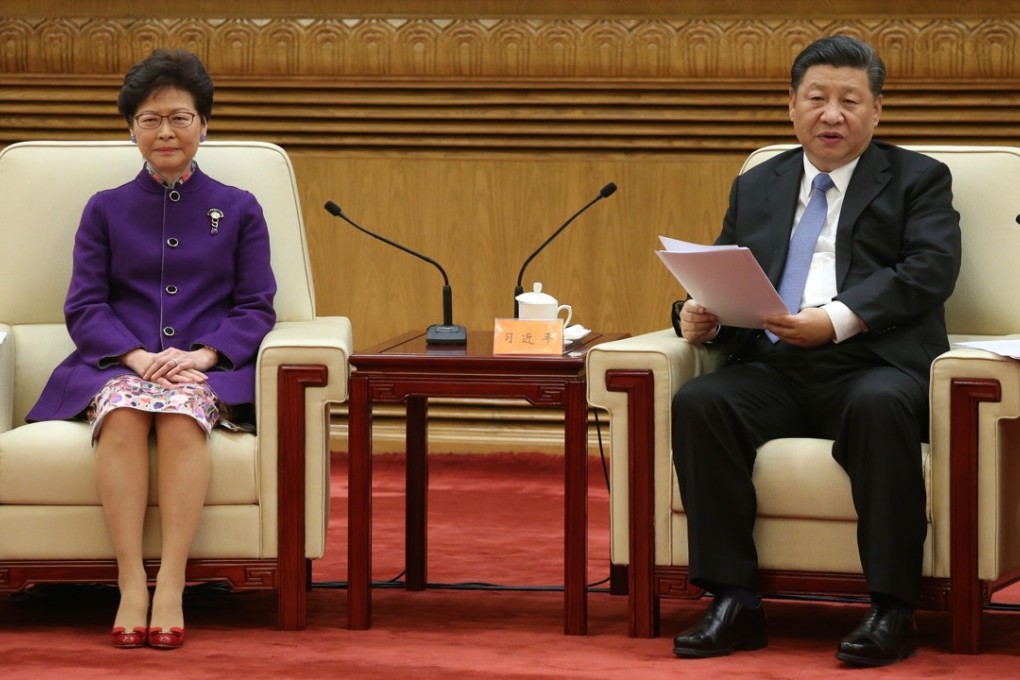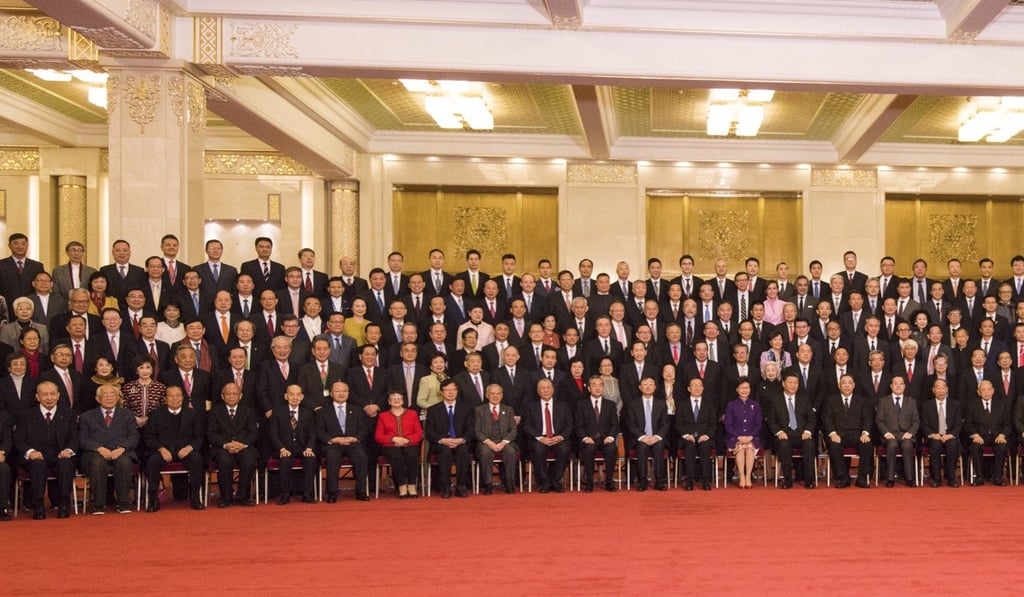Advertisement
Hong Kong and Macau played ‘unique and irreplaceable’ roles in China’s reform and opening up, Xi Jinping says while urging both cities to protect national security
- President speaks to top officials, business and political leaders from both cities at Monday meeting in Beijing
- He urges both cities to integrate into national developments, especially ‘Belt and Road Initiative’ and ‘Greater Bay Area’ plan
Reading Time:4 minutes
Why you can trust SCMP

President Xi Jinping has urged Hong Kong and Macau to protect national security and be more active in the country’s governance in the years ahead even as he praised the two cities for their “unique and irreplaceable” role in China’s successful reform and opening up over the past 40 years.
At a meeting on Monday with a delegation of top officials and business leaders from the special administrative regions, he also called on them to do more to promote international cultural exchanges, support further opening up and integration into the nation’s development plans, especially the “Belt and Road Initiative” and “Greater Bay Area” initiatives.

Advertisement
The former refers to Beijing’s global trade strategy, while the bay area scheme is a plan that seeks to turn Hong Kong, Macau and nine nearby mainland cities into a financial and innovation hub to rival Silicon Valley.
During the start of the session, which was open to the media, Xi delivered a six-minute speech, acknowledging the contributions of both cities.
Advertisement
Advertisement
Select Voice
Select Speed
1.00x